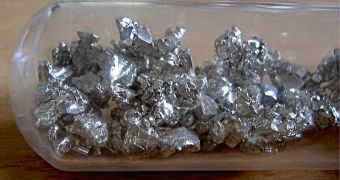Scientists in the United Kingdom have recently discovered a mechanism involving the common chemical calcium that can lead to sudden cardiac death in people who suffer from heart failure.
The researchers say that there is a silver lining to their investigation, in the sense that the discoveries open up a potentially new avenue of research in preventing the negative effects of heart diseases, as well as the very development of the conditions.
An interesting aspect of the research is that the experts were able to understand the new pathway in detail. They learned that sudden cardiac death can appear if excessive amounts of calcium are suddenly released inside the cardiac muscle.
The discovery is interesting to say the least, because calcium is a chemical that plays a fundamental part in regulating the contractions of the cardiac muscle. Additionally, the element is responsible for regulating its own production, in a process called calcium-induced calcium-release.
Each time the heart beats, small amounts of the stuff are being released from tiny intracellular stores known as the sarcoplasmic reticulum (SR). They then pass through specialized channels called ryanodine receptors (RyR2), and go on to condition the release of other amounts of calcium.
When RyR2 channels are opened excessively, large amounts of calcium make their way into the cardiac muscle. In healthy patients, this causes disturbance in the normal rhythm of the heart, a disease called arrhythmia. In sick patients, the consequences can be much worse.
The research team, based at the University of Bristol, says that the protein called protein kinase C (PKC) plays a critical part in determining how wide and for how long RyR2 channels remain open.
“Our findings reveal a novel mechanism for opening calcium channels inside heart cells. We show that a protein called PKC can disrupt the normal behavior of the calcium channels, causing excessive openings at the wrong time,” Dr Rebecca Sitsapesan explains.
“This new information will help us to design treatments that can prevent this occurring and help in the fight against heart disease,” adds the expert, who is a reader in pharmacology at the university.
“Our experiments measure the opening and closing of single calcium channels. We have been able to show that PKC changes the way in which the calcium channels open and this may be one of the reasons why too much calcium is released in heart cells at the wrong time and why patients with heart failure are at risk of sudden cardiac death,” she adds.
Details of the new investigation were published in the latest issue of the esteemed scientific Journal of Membrane Biology.

 14 DAY TRIAL //
14 DAY TRIAL //